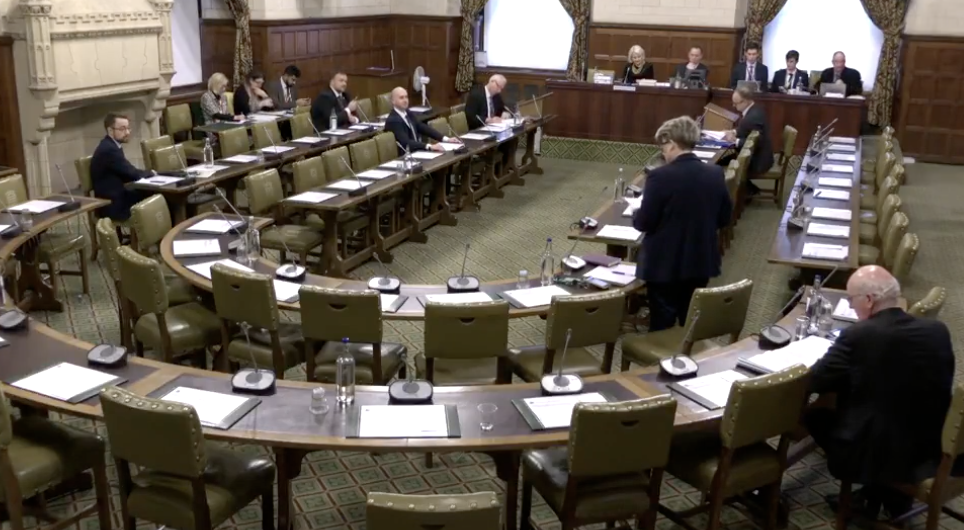Food Security and Rural Affairs Minister, Daniel Zeichner has told MPs Defra is working with the Dover Port Health Authority (DPHA) to ensure it is able to tackle the threat posed by illegal meat imports.
During a Westminster Hall debate on biosecurity in parliament on Wednesday, Shadow Defra Minister Dr Neil Hudson (Con, Epping Forest) highlighted figures published by the European Commission detailing cases of ASF in more than 20 nations across the continent, pointing out the need for vigilance in the UK.
He also highlighted recently released figures showing that Border Force seized 70,000kg of illegal, and therefore unregulated, meat in the 2023-24 financial year, up from 35,000 kg the year before. He asked the minister to provide an update on BTOM’s capacity to safeguard the country from ASF and FMD, including, with BTOM checks at Sevington at 22 miles inland, whether ‘we will still be able to carry out random spot checks within the port of Dover itself’.
Responding Mr Zeichner stressed that prevention is better than cure and insisted that ‘preventing an outbreak of African swine fever in the UK, remains one of our key biosecurity priorities’.
He said that, to help prevent an ASF outbreak, there are robust safeguards in place, including a ban on live pigs, wild boar or pork products entering GB from affected EU areas, enforced by Border Force and Port Health Authority officers.
He highlighted new measures brought earlier this year and said Defra and its agencies ‘continuously review the spread of ASF and other diseases, and are ready to introduce further biosecurity restrictions, should they be deemed necessary, in response to new scientific and risk data’.
Mr Hudson intervened to challenge the minister on the ability to conduct random spot checks within the Port of Dover itself.
The response from the minister was simply: “I absolutely share the hon. Gentleman’s concerns. We are working closely with the Port Health Authority to make sure that everything that needs to be done can be done.”
- You view see NPA senior policy adviser Tom Haynes’ full write-up of the debate, secured and led by the newly-elected Labour MP Ben Goldsborough, HERE
APPG Dover briefing

This week also saw the newly-formed All Party Parliamentary Group for Food Security hold its first substantive meeting, which looking at the issue of biosecurity and borders, with presentations by representatives of DPHA.
“The scale of food being brought into the country illegally is on the rise, with 15 tonnes being seized at Dover in October alone,” Mr Haynes said.
“The team from DPHA were able to talk through some of the recent cases of illegally imported POAO that they have intercepted on the border, with, it must be said, some fairly graphic images accompanying it.
“The group saw everything from raw frozen pig skins being mixed into commercially compliant loads and pig and sheep casings that originated from China, were processed in Romania and then transported in the unrefrigerated lockers underneath an artic lorry, to commercially packaged mince and sausages labelled for the Romanian domestic market only and completely unlabelled shipments of wild boar.
“To say that each and everyone of these cases presents a huge ASF risk is an understatement and further demonstrates the need to have a properly resourced and functioning arrangement at our borders.”
The members of the APPG now intend to pen a joint letter to ministers, highlighting their concern at the current situation at the border as well as calling for a multi-year funding settlement for DPHA.
During the Westminstr Hall debate, APPG chair Luke Charters said: “The amount of meat seized by Border Force officials has doubled in a year. The APPG was briefed on cases of illegal meat entering the UK—a risk to human and public health because of Trichinella, for example.
“There is also a significant biosecurity risk of African swine fever coming into the UK via that point of entry and entering into commercial pig production. To underline the point, I am not one for scaremongering, but the National Audit Office estimated that the 2001 foot and mouth outbreak cost the UK economy £8 billion, which is equivalent to almost double that amount today”.




